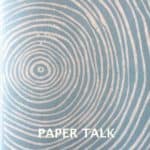
You can listen to this episode by clicking on the white arrow above, or subscribe to the Paper Talk podcast on Apple Podcasts (or find more listening options on Anchor.fm) so you never miss an episode. If you enjoy the show, tell a friend about it! Thank you so much.
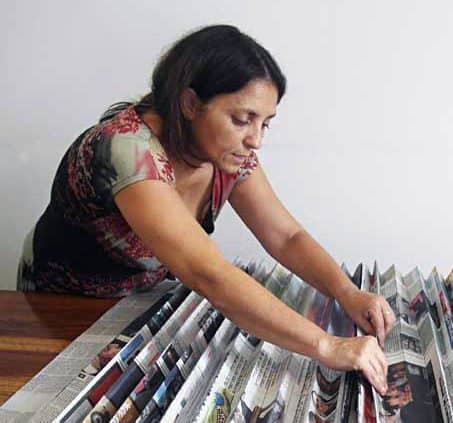
Entrepreneur, educator and origami artist Miri Golan hopes to use her installations as a catalyst to unite people of different religious and cultural backgrounds. Many of her works use the book as a symbol of education, wisdom, and spirituality—ideas that can be used to help bring people on opposite sides of conflicts together. Her sculptures incorporate a variety of spiritual texts in unexpected ways and suggest that despite religious differences, people are fundamentally the same.
She is the founder of the Israeli Origami Center and Folding Together, an organization that encourages Israeli and Palestinian children and adults to fold paper forms as a team, turning origami into a collaborative expression of hope for a more peaceful world. She also designed and developed a mathematics curriculum called Origametria that has been accepted into the curriculum by the Israeli Ministry of Education, in which children learn geometry principles by folding origami models. Enjoy our conversation!
++++++
We talked about how she started the Israeli Origami Center in 1993 and how teachers take e-Learning Origametria into the classroom. The website is an important international origami resource.
Golan founded Folding Together, a program that brings together Israeli and Palestinian children from the Jerusalem area, to make origami. In their everyday lives, the children of the two sides never meet, perpetuating the cycle of ignorance, mistrust and fear of the other side. By bringing the children together in an atmosphere of fun and co-operative creativity, they are breaking this cycle and helping to move the people of their region towards a more positive, mutually respectful future.
Golan designed Origametria for teachers and others who teach geometry, from Kindergarten to Middle School. The method is research-based, highly motivational, fun and requires no origami skills from the teacher. The e-Learning Origametria program has been accepted into the curriculum by the Israeli Ministry of Education. It is the product of many years of field work / origami teaching, combined with significant input from a team of professors of math education, supervisors from the Ministry, full-time teachers, specially-trained Origametria teachers and children.
Golan talked me through folding this origami swan using only spoken geometric language and no diagrams (you can try it too). This is the foundation of her Origametria program, teaching geometry via origami in the classroom.
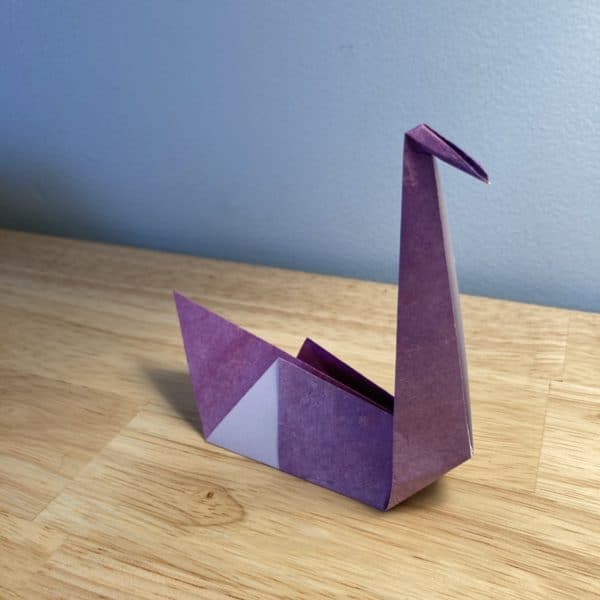
Golan shared some of her artwork with me as well, which addresses her view that despite religious differences, people are fundamentally the same.
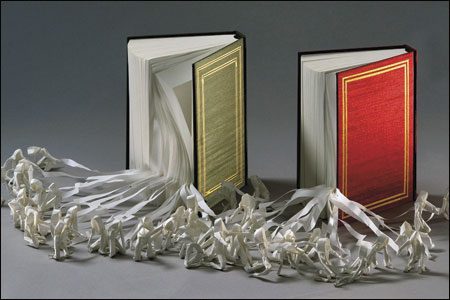
Two Books
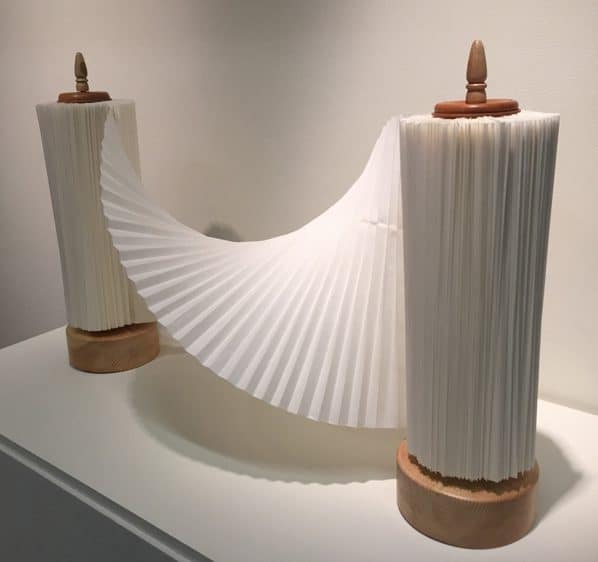
Twisted Holy Scroll
Miri Golan’s recommendations:
- Books by Makoto Yamaguchi: his books are full of great-looking models and are quick and easy to fold. He is an overlooked master of creative origami.
- Books by Paul Jackson: Paul’s books are clear, beautiful, very creative and open up folding and origami to an infinite world (full disclosure, Jackson is Golan’s husband, but I completely agree with her assessment).
++++++
Music featuring excerpts of Makin’ Paper folk song by Peter Thomas. Listen to the full song and find out about other paper and book arts folk songs.
Gary A. Hanson did the sound editing for this episode. He practices and refines his skills in audio production while making his own podcast I’ll Have a Beer and Talk, a show about tech news, culture, weird animal stories and of course, beer. Gary is also the Deckle in Pulp & Deckle, a Portland-based community hand papermaking studio.
++++++

4 Comments
Enjoyed the interview with miri golan
Thank you for listening!
Such enthusiasm I love. Thank you to you and Miri.
Thanks so much, Joan. Miri’s enthusiasm is infectious, isn’t it?!